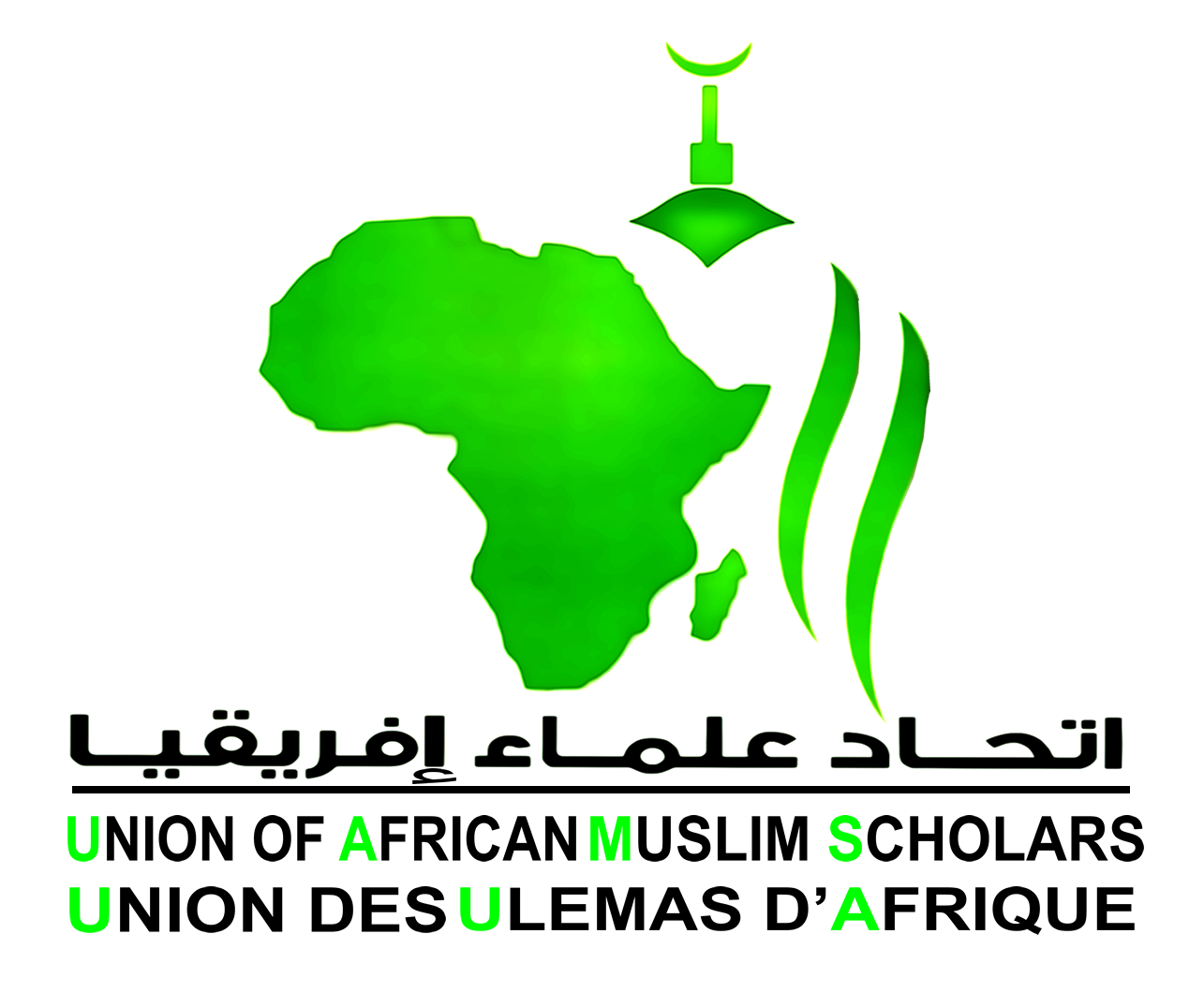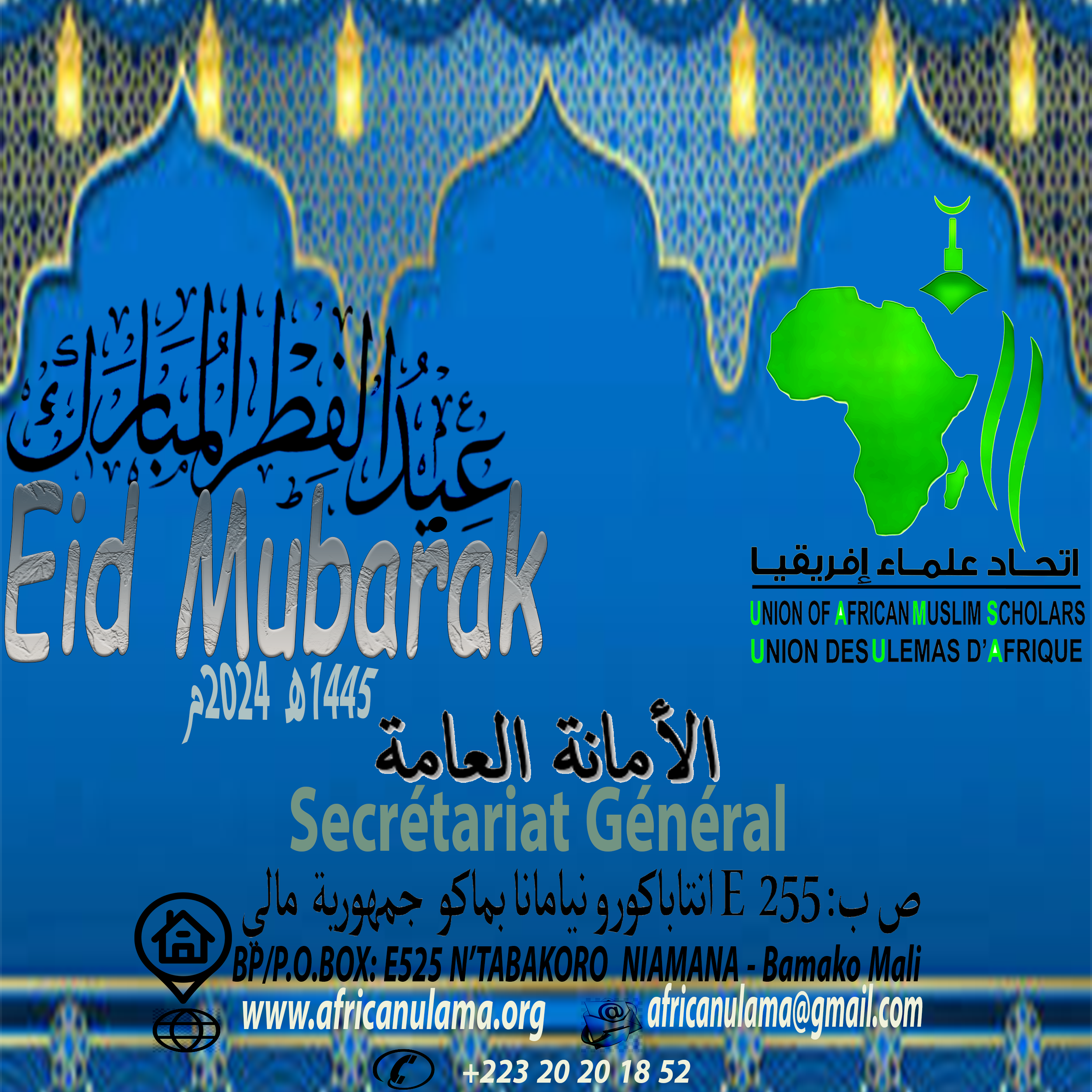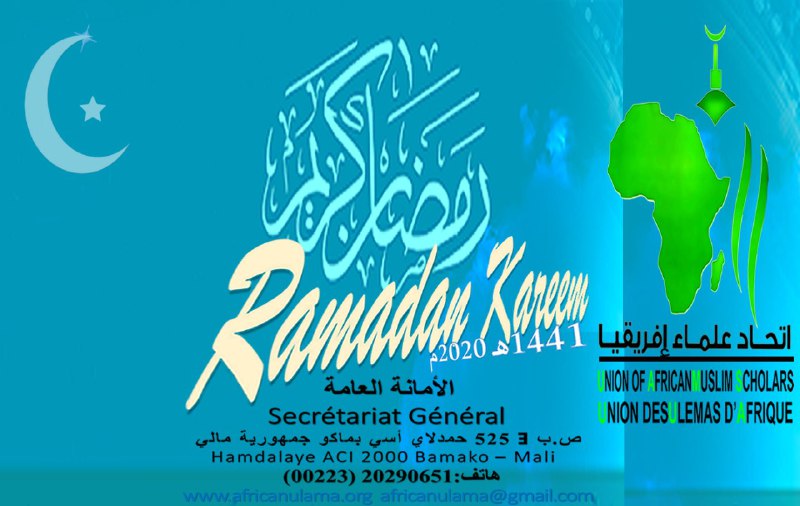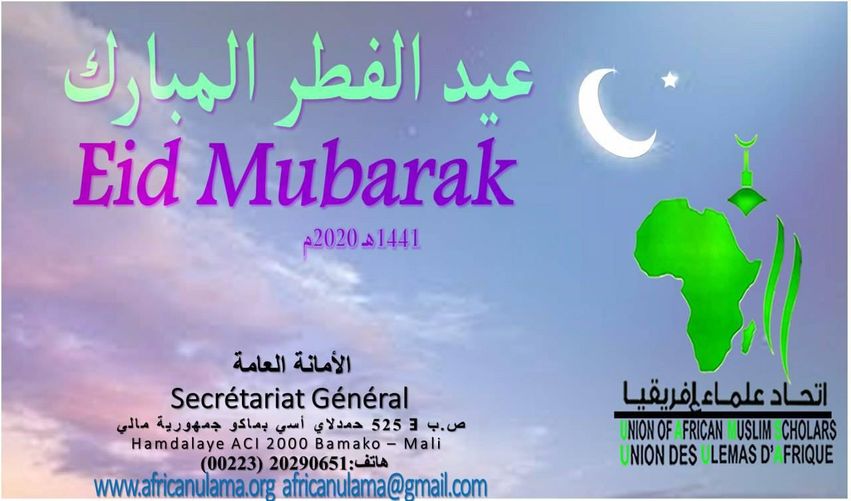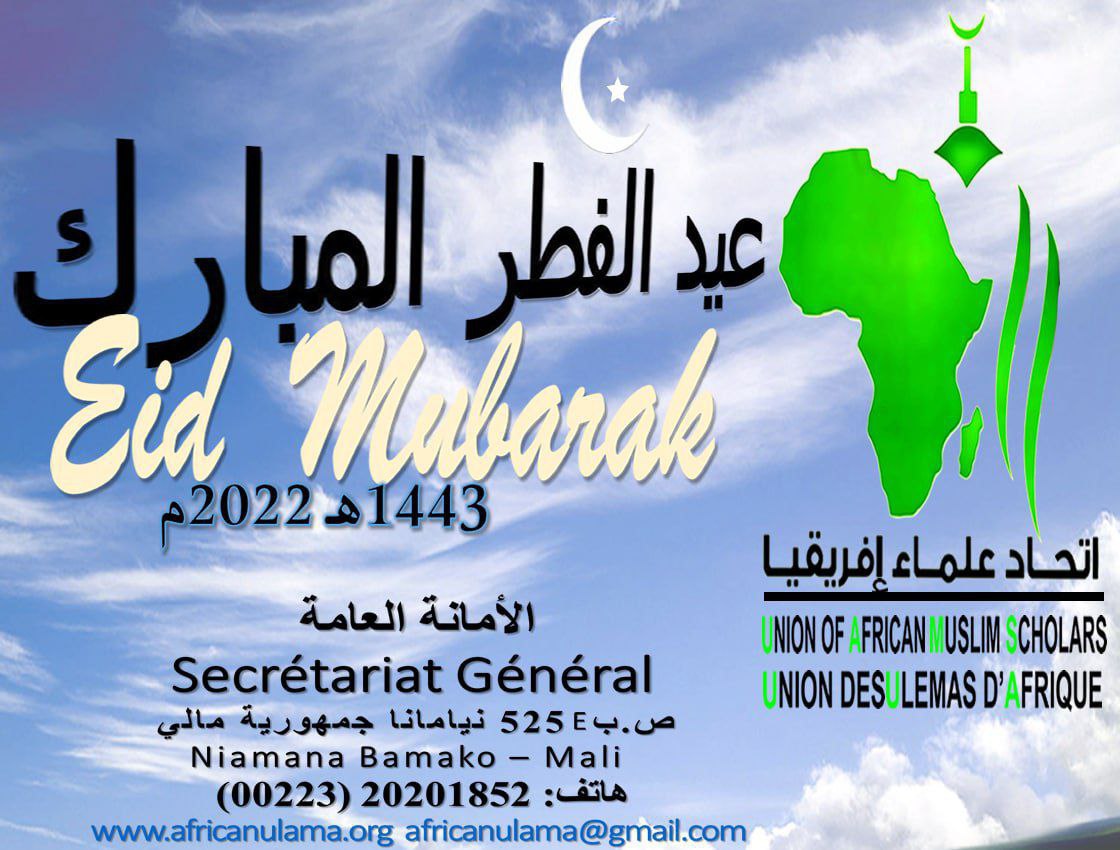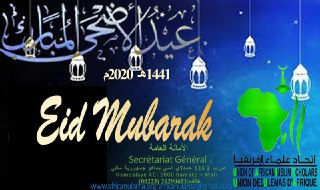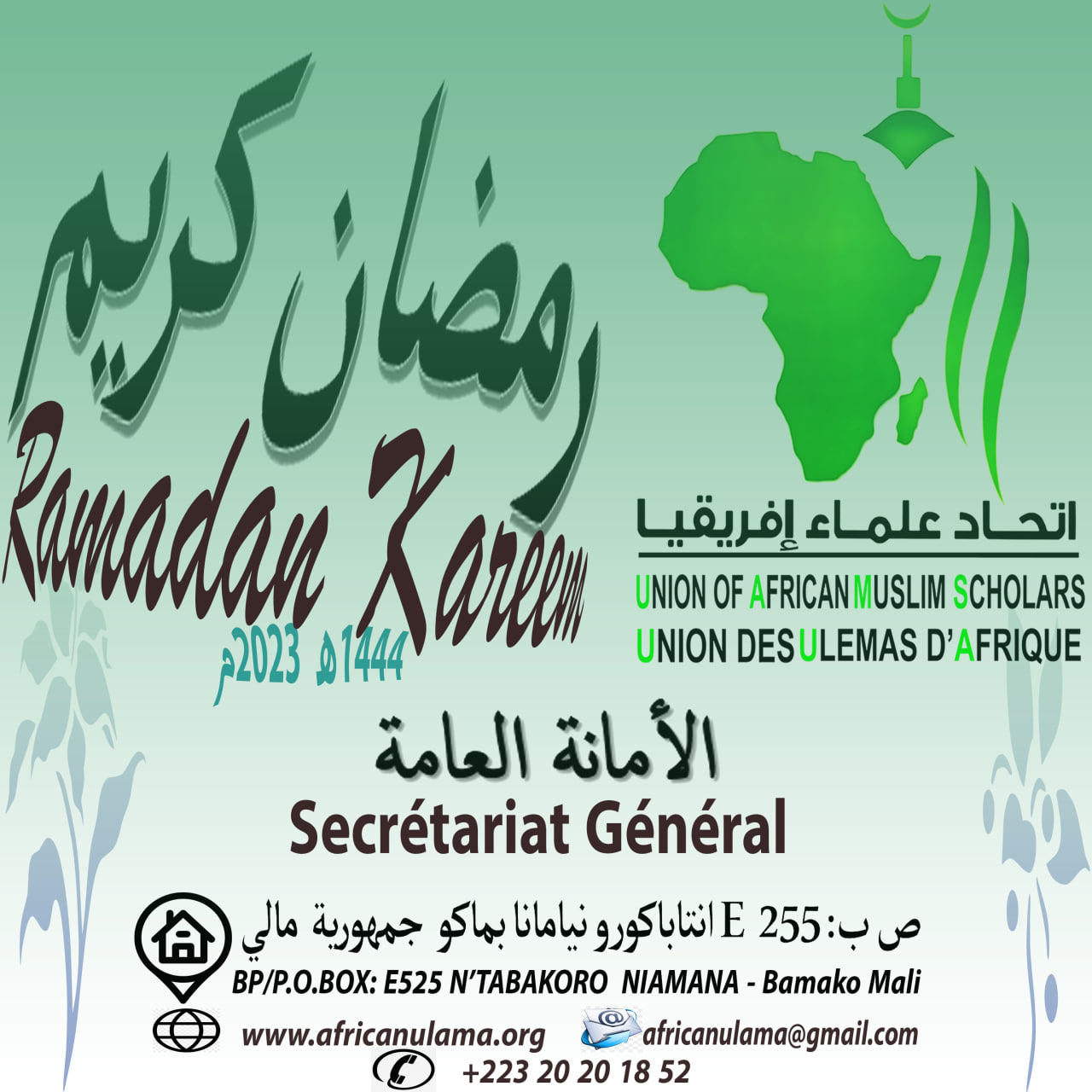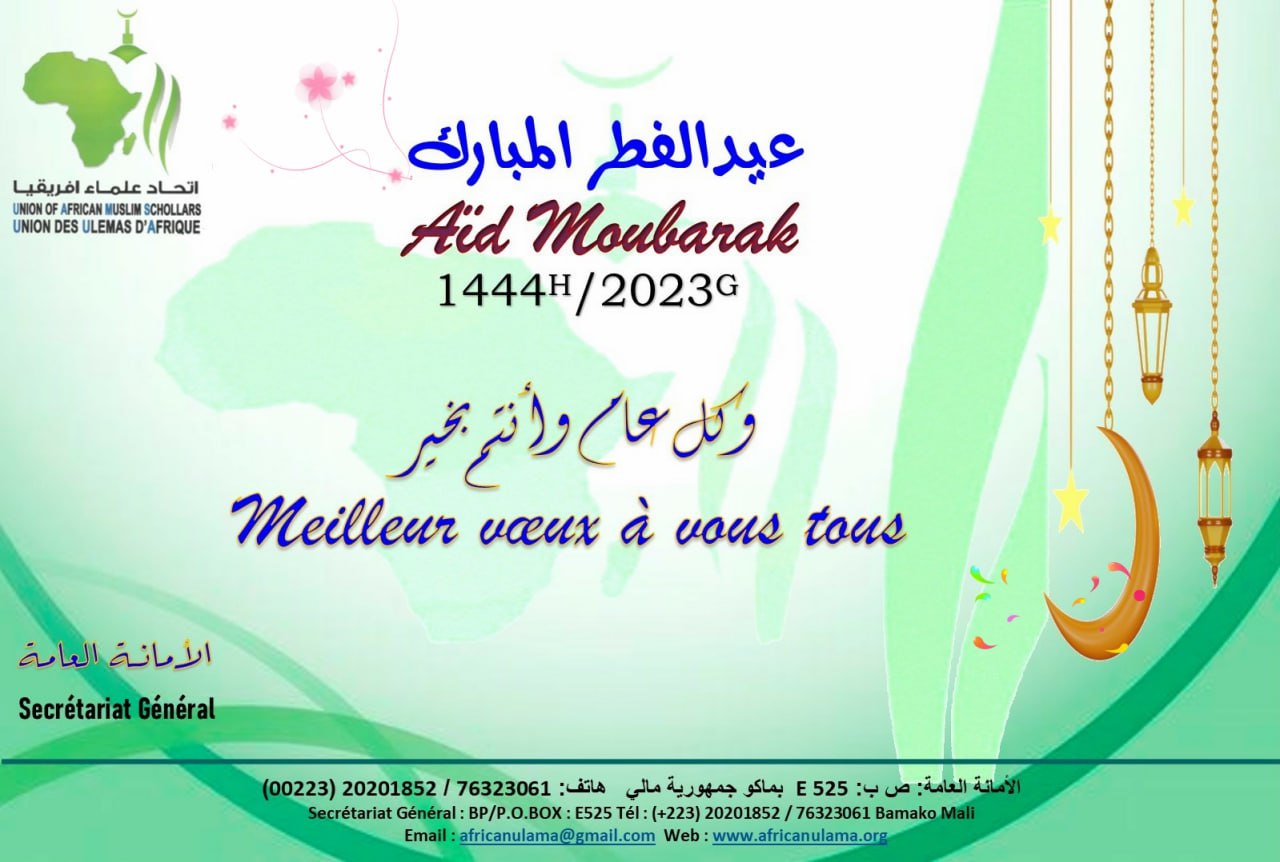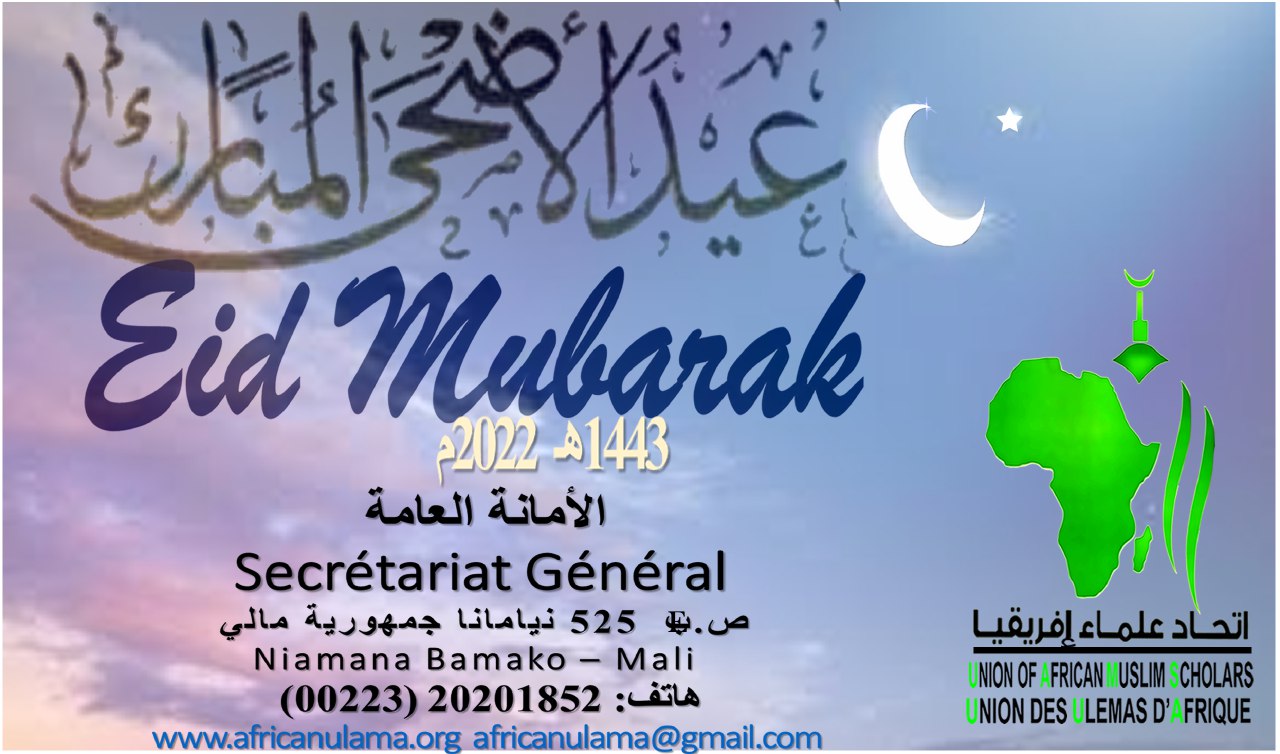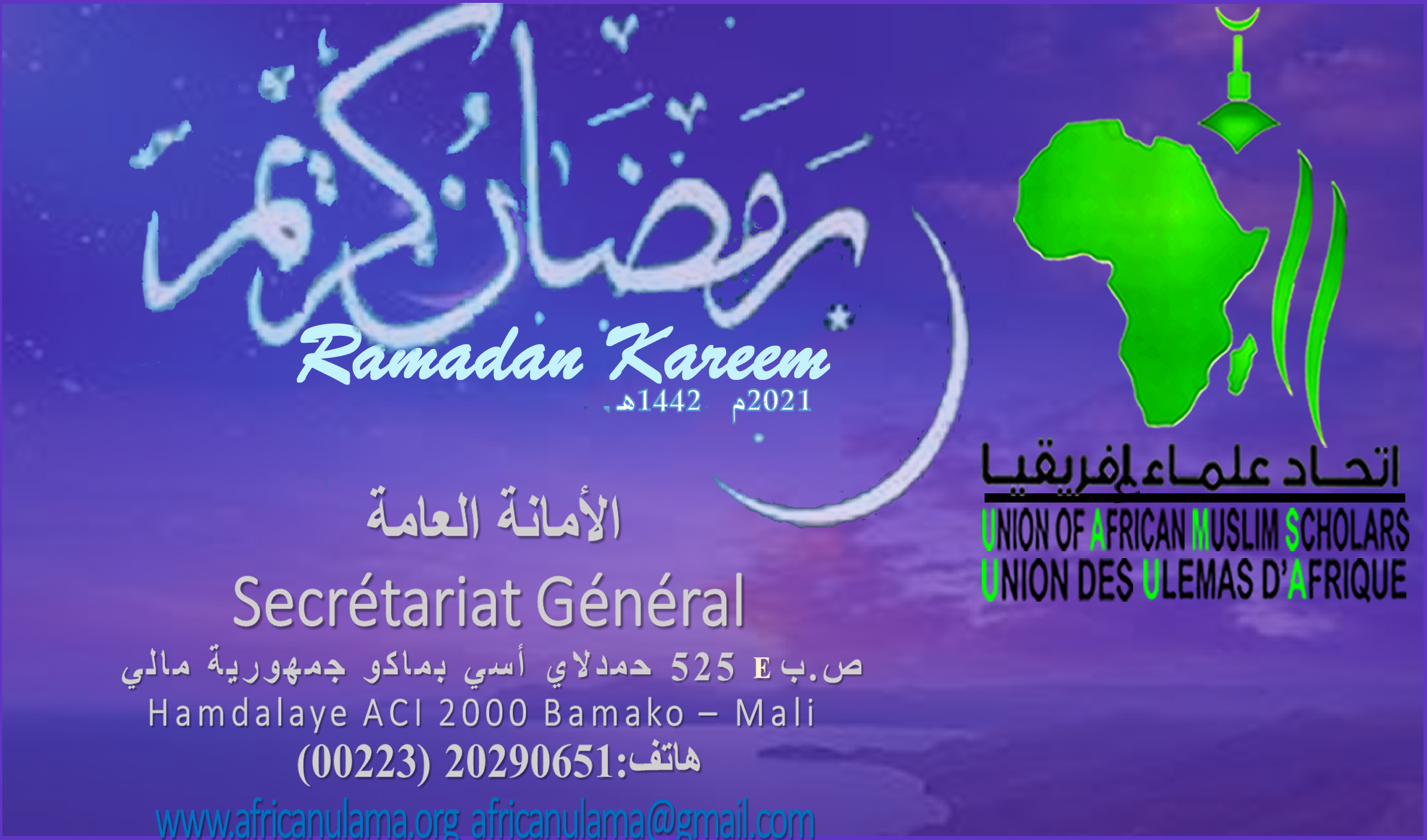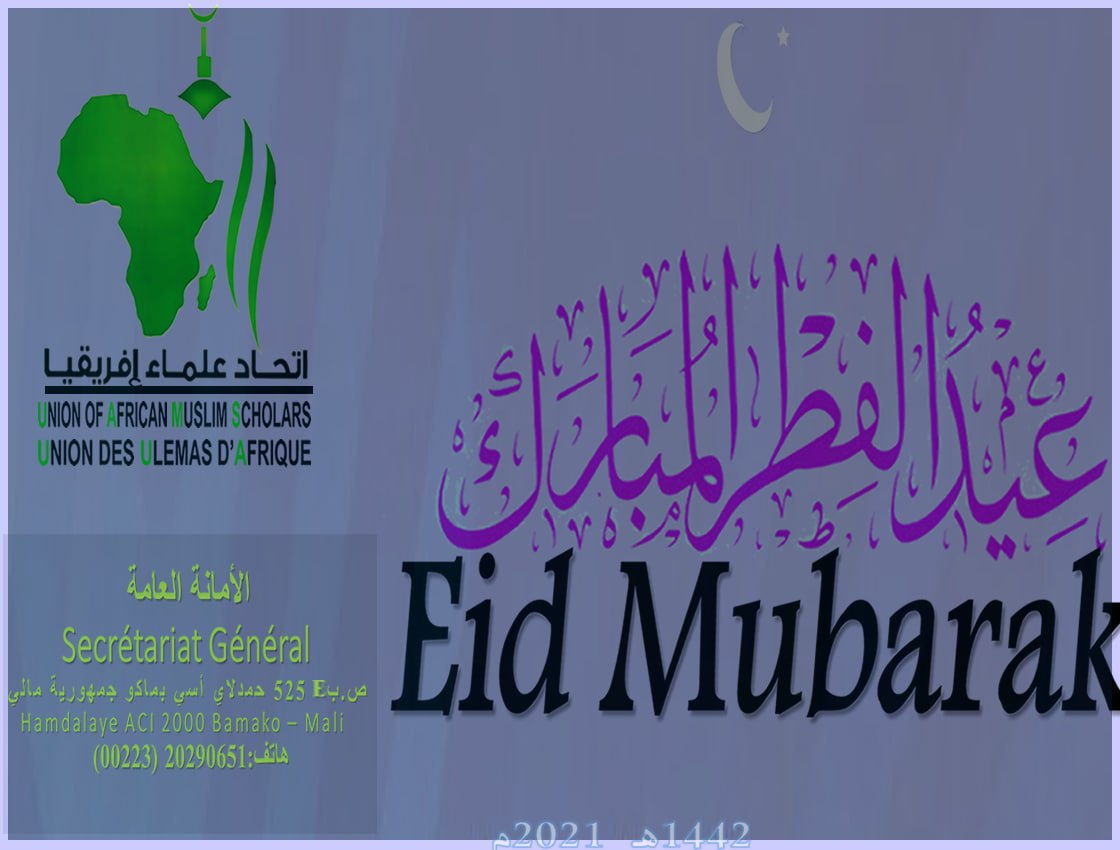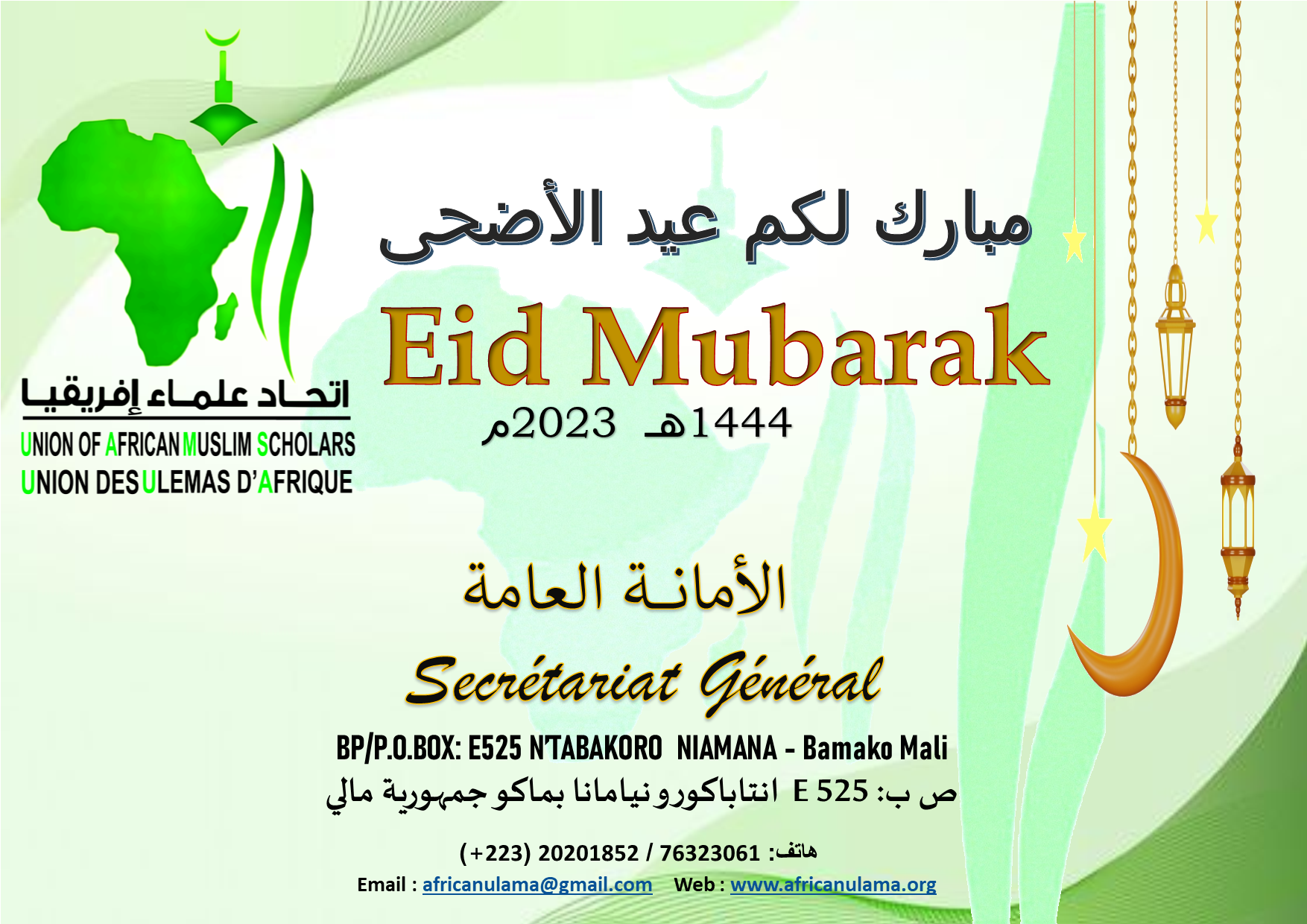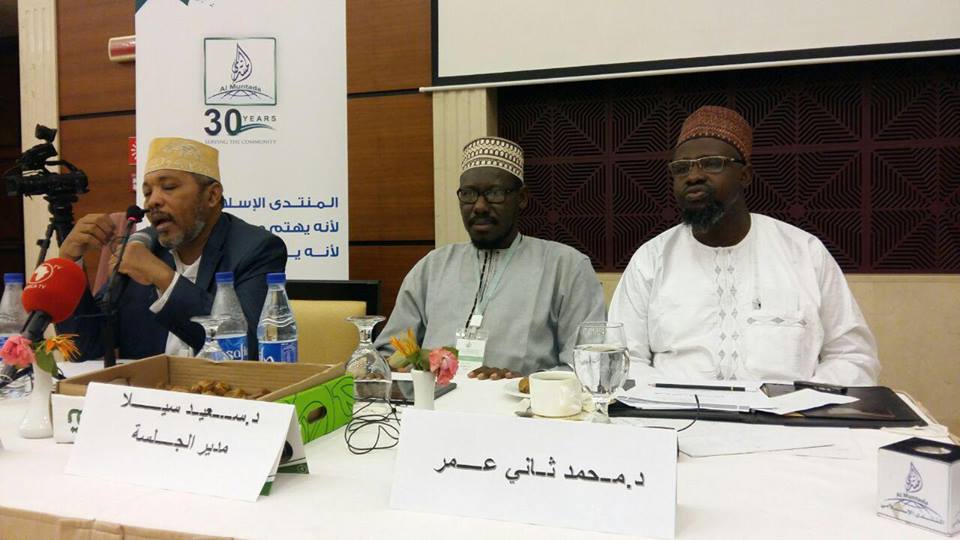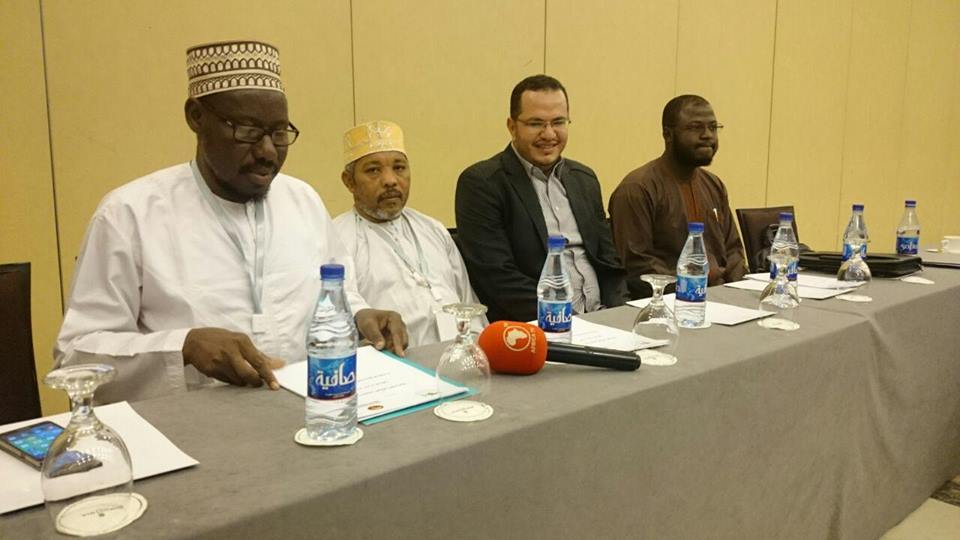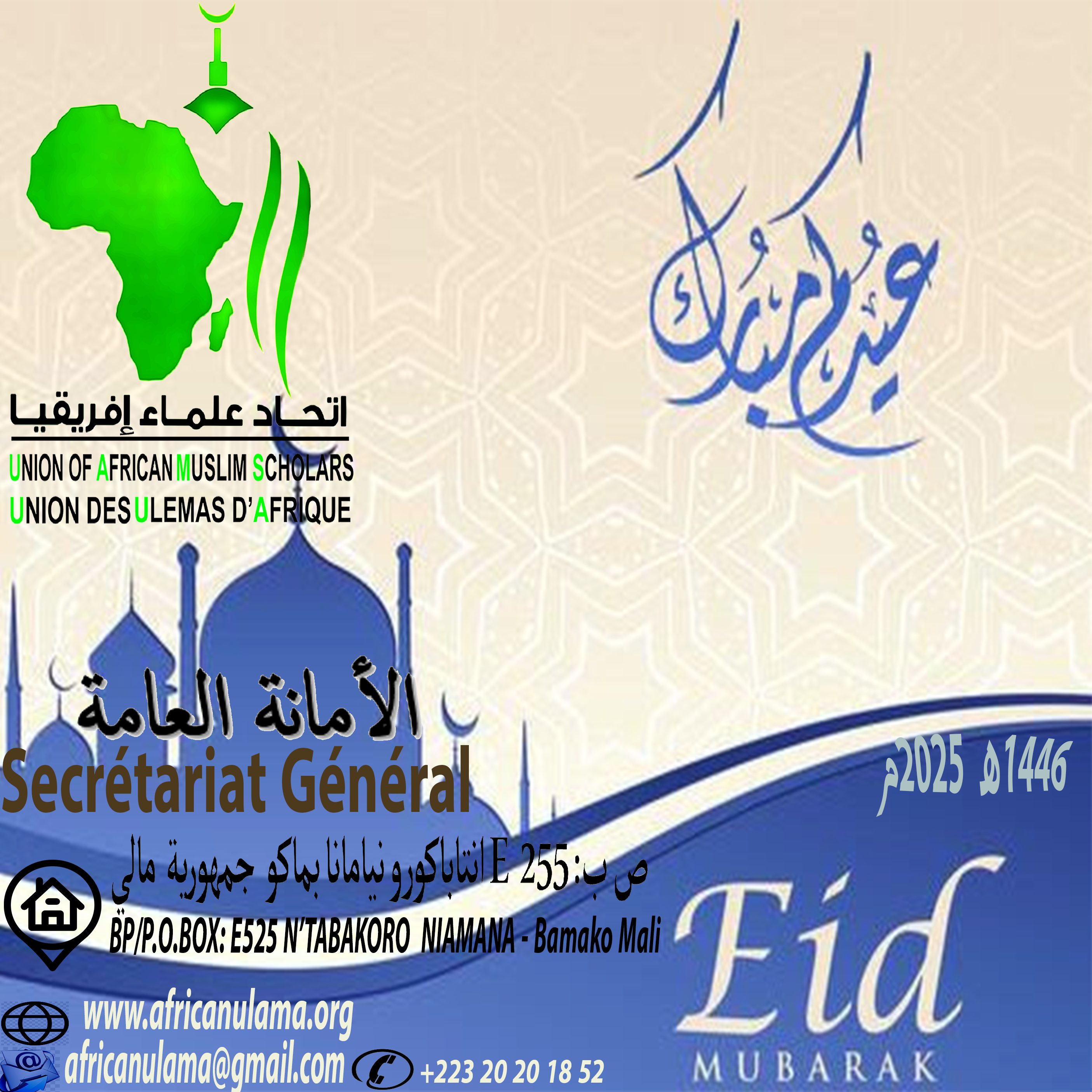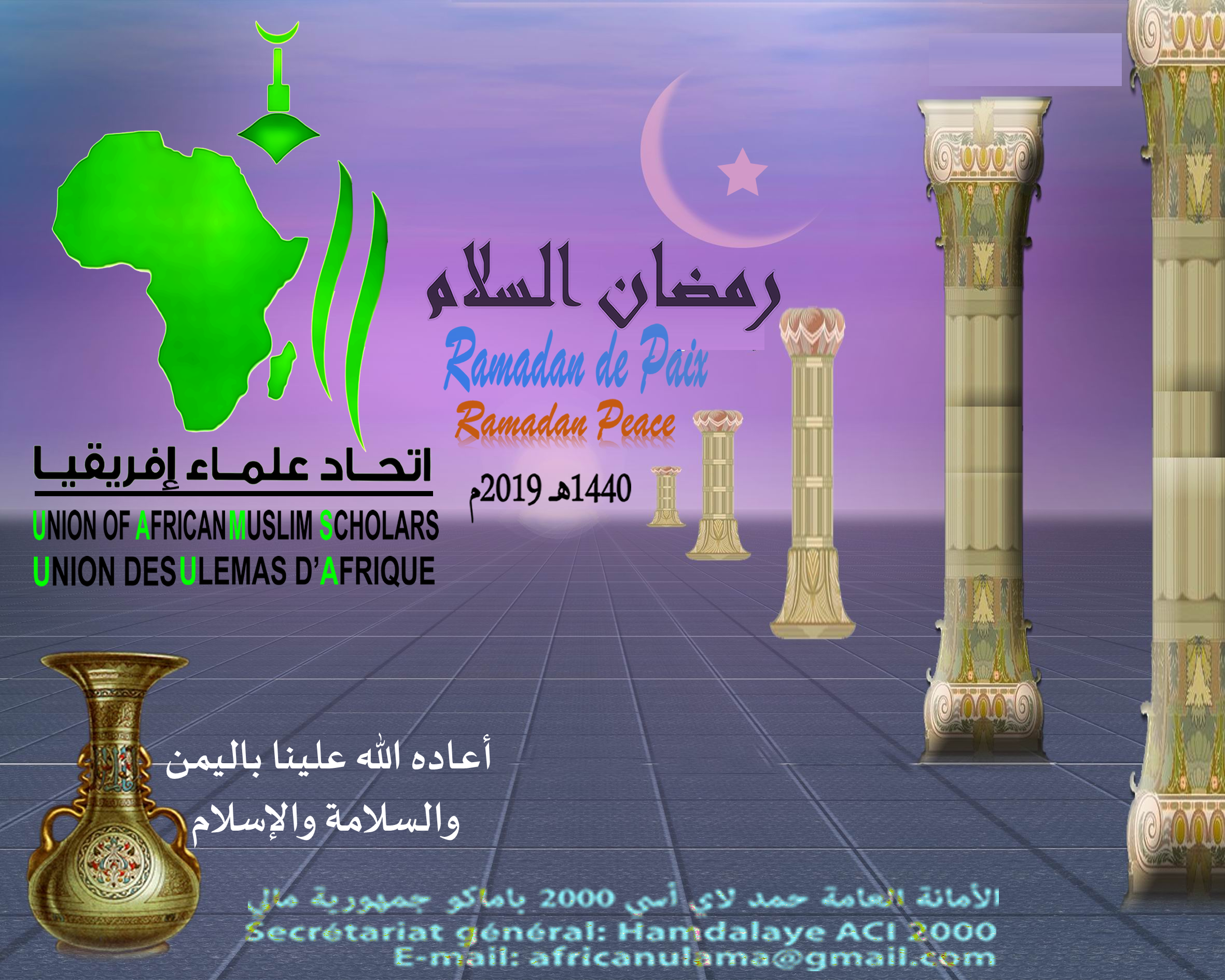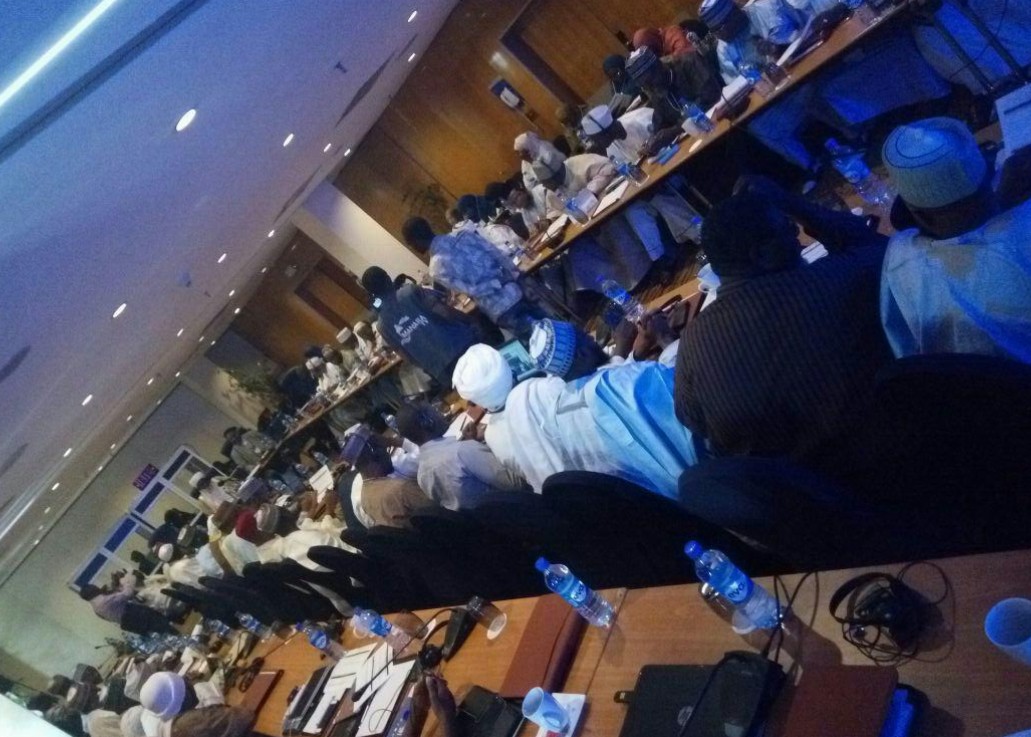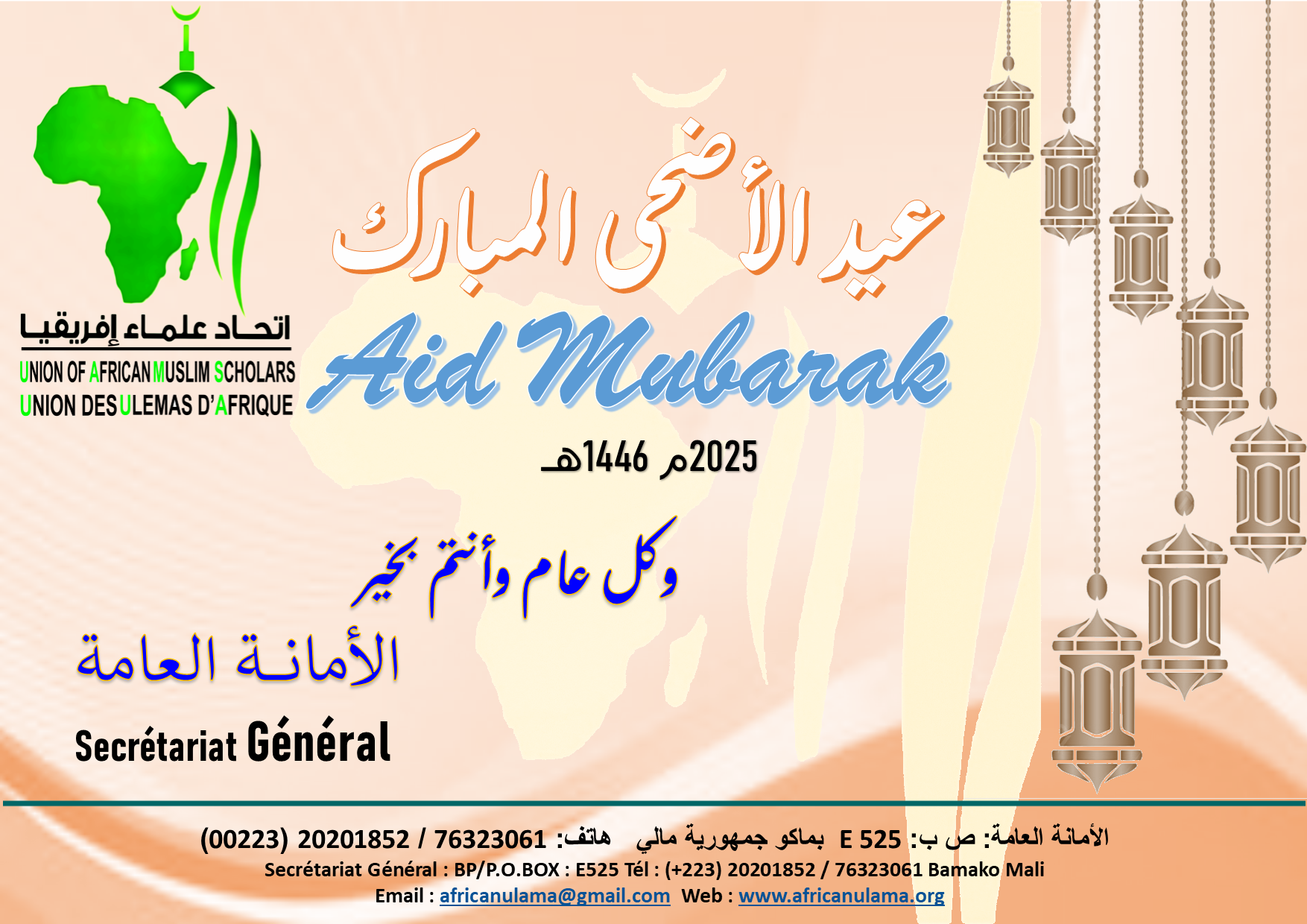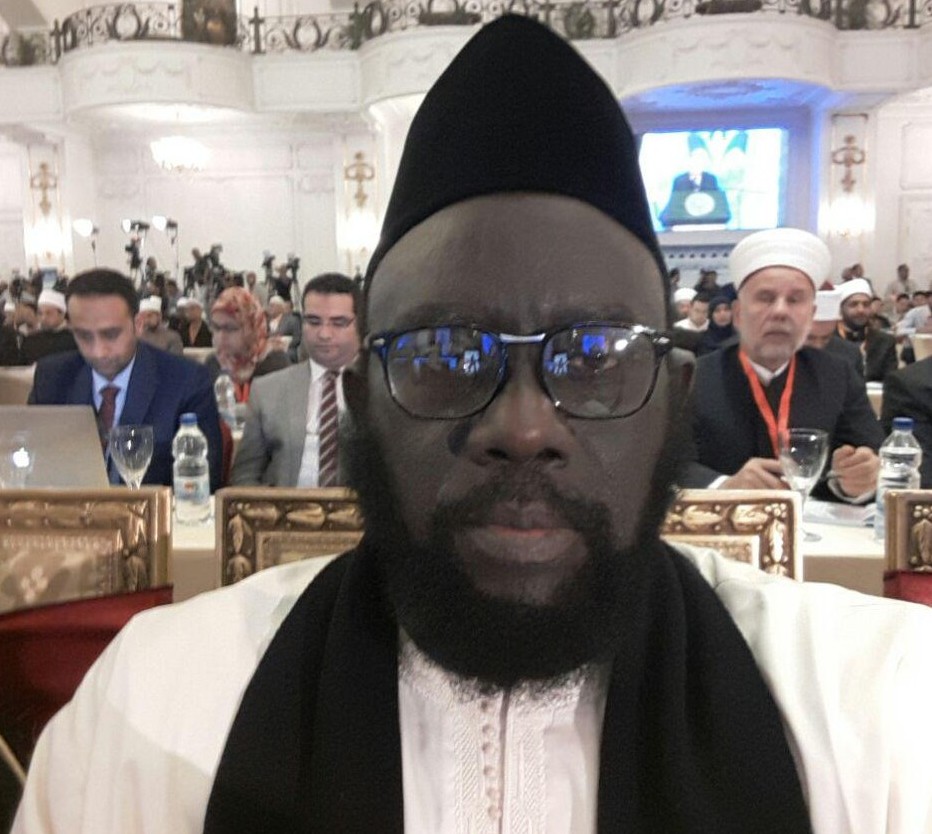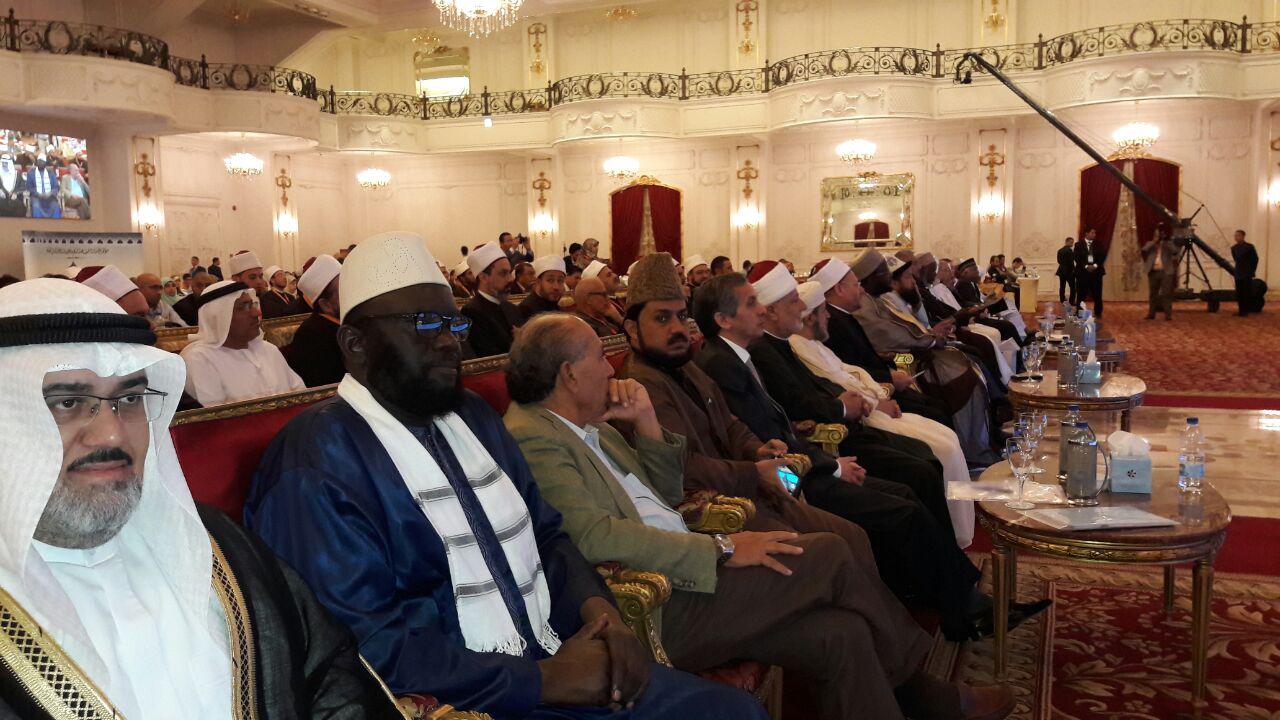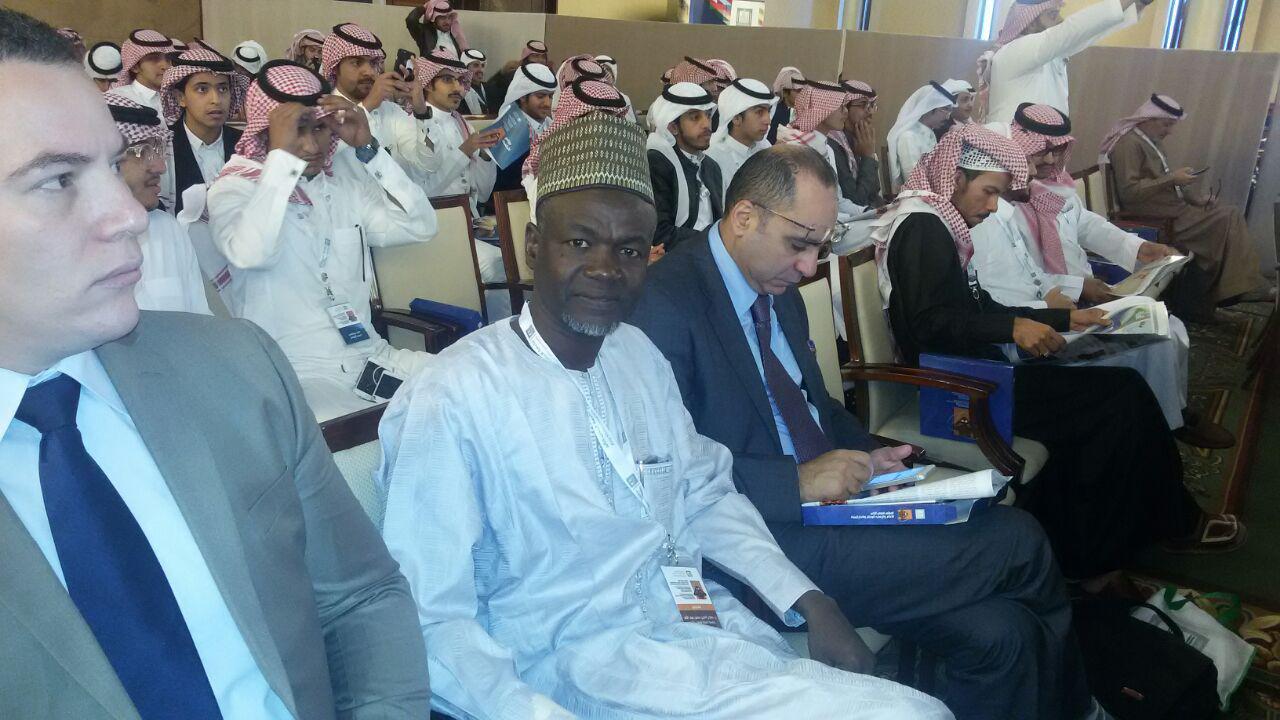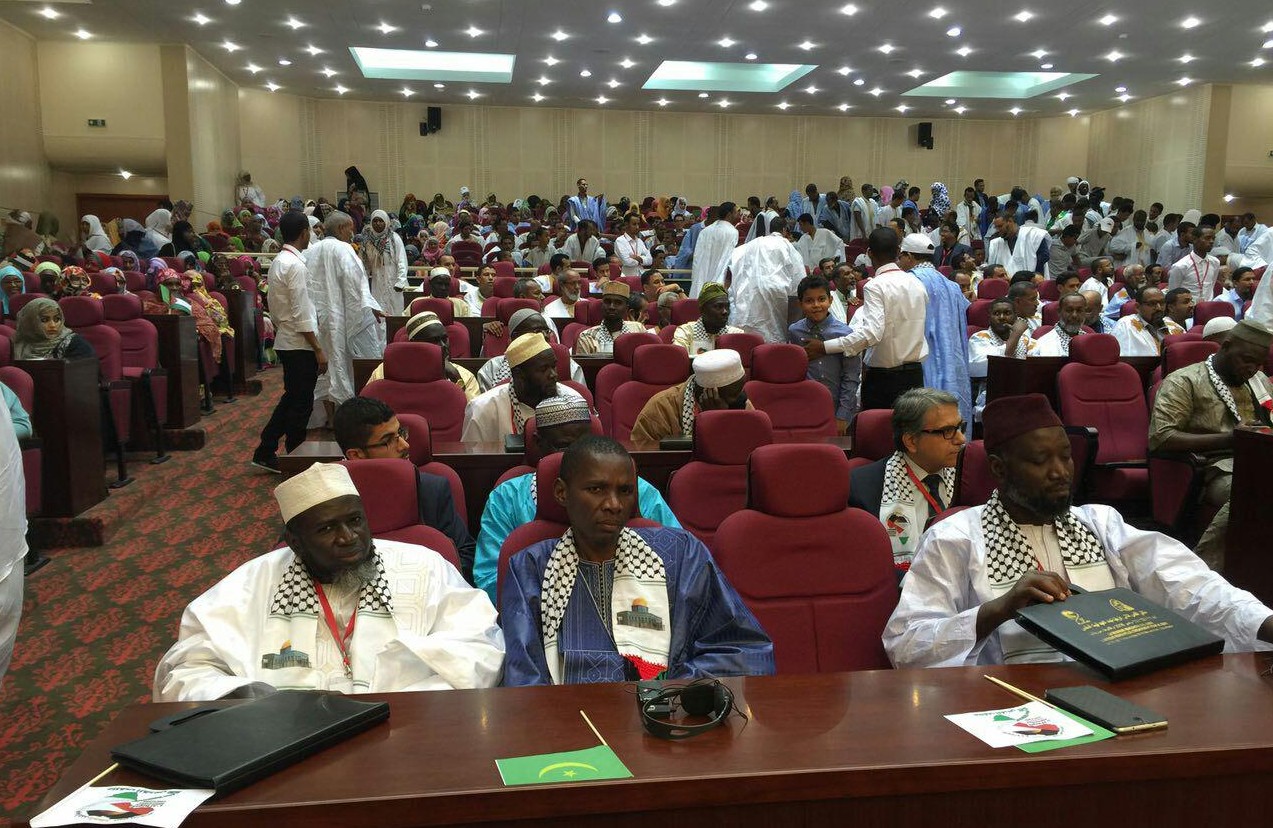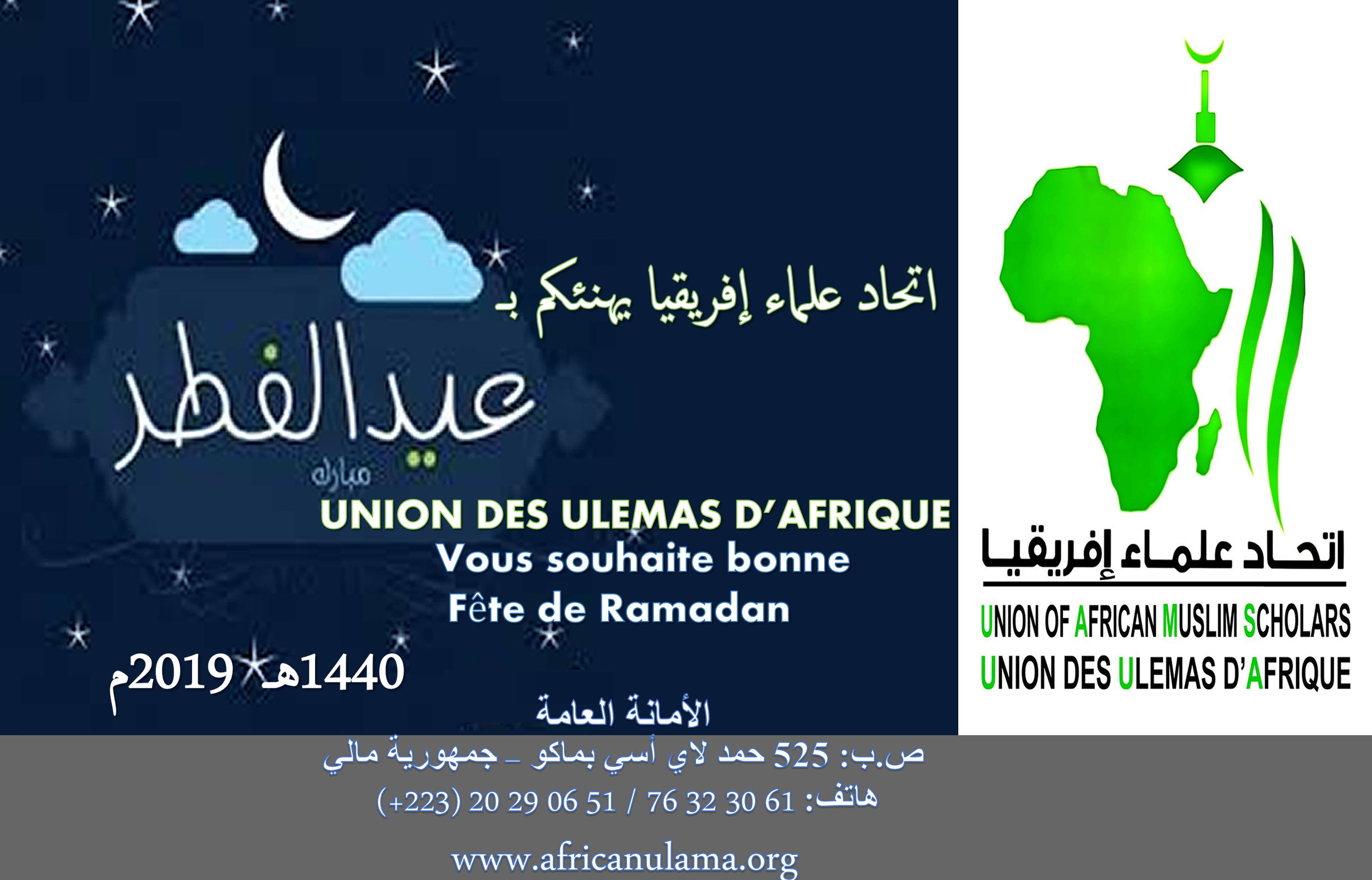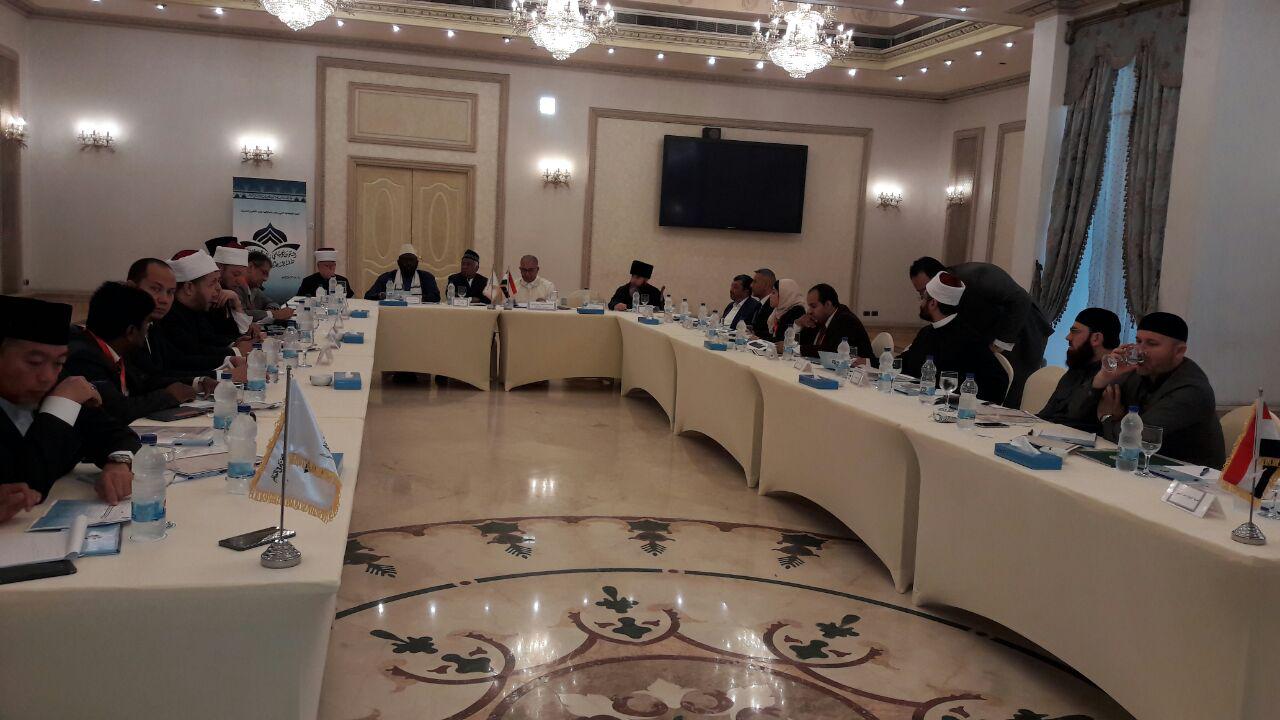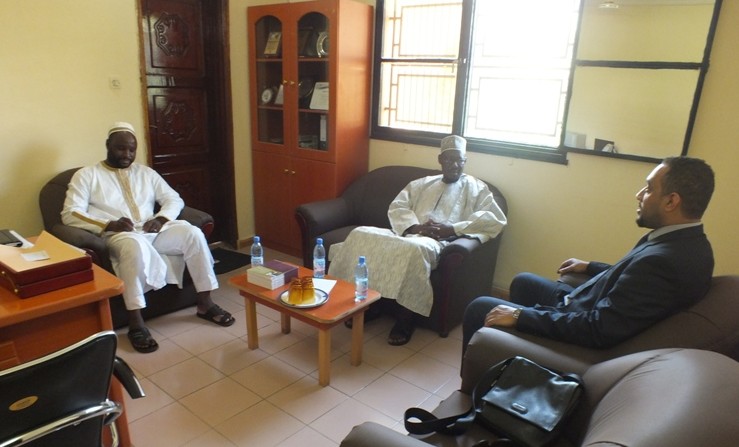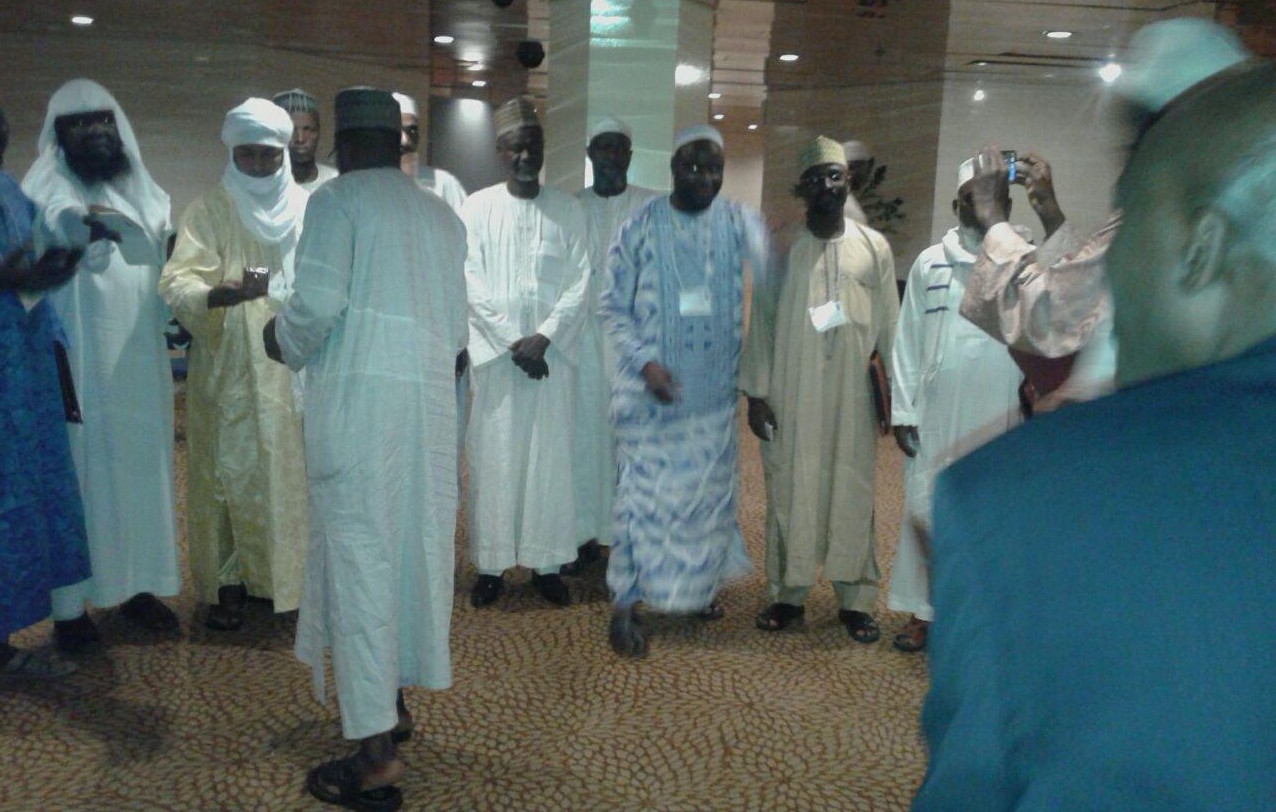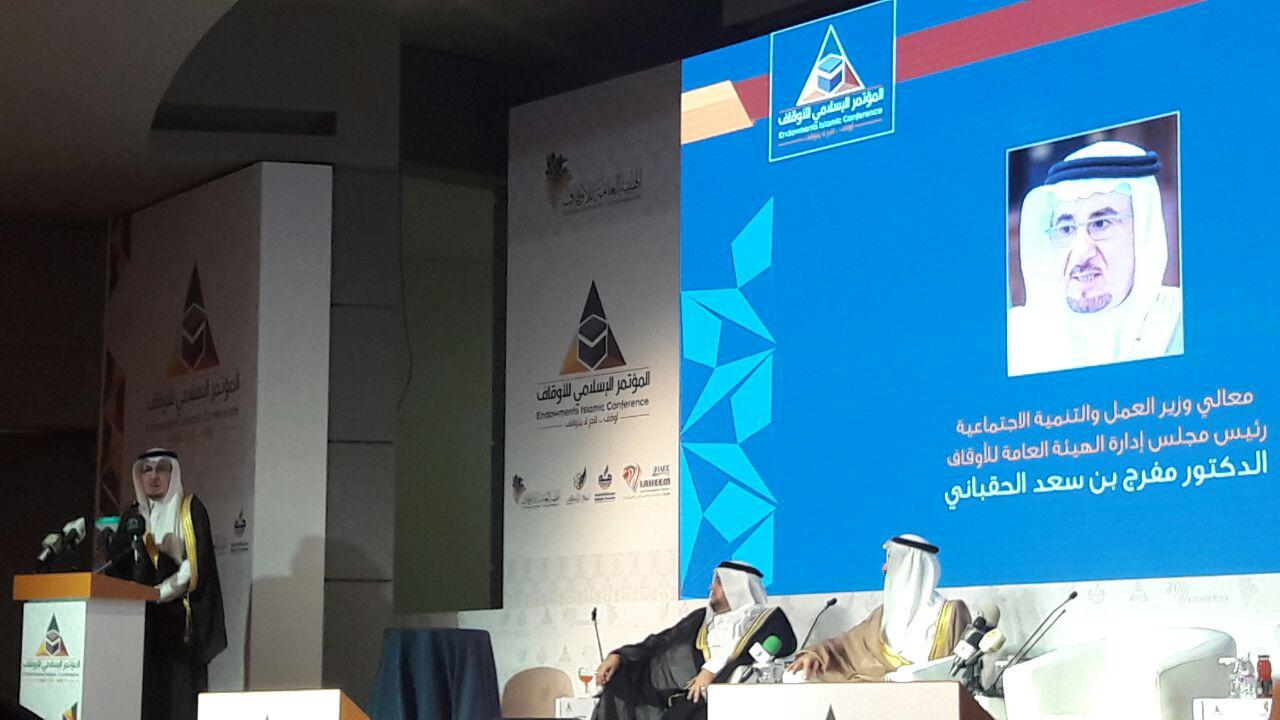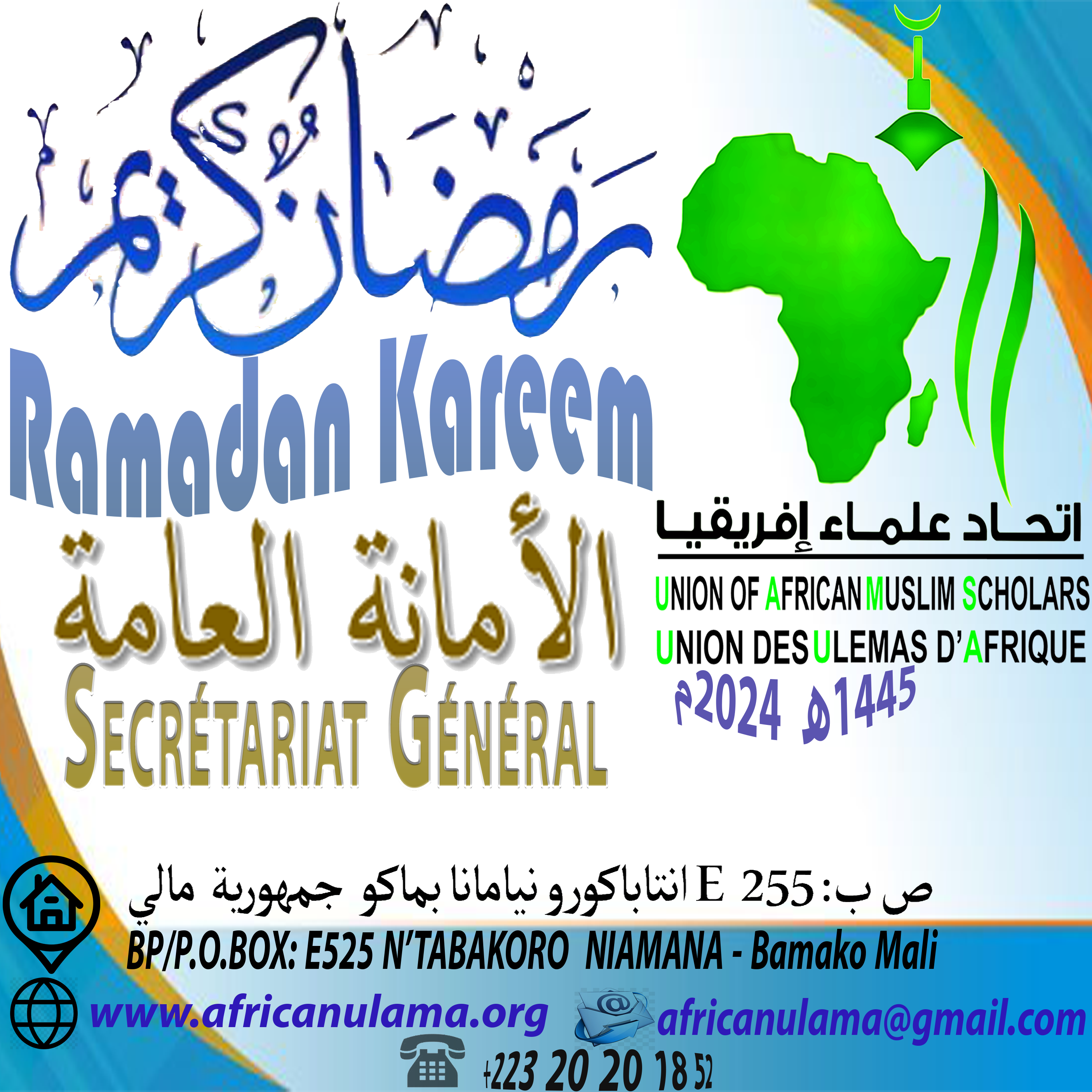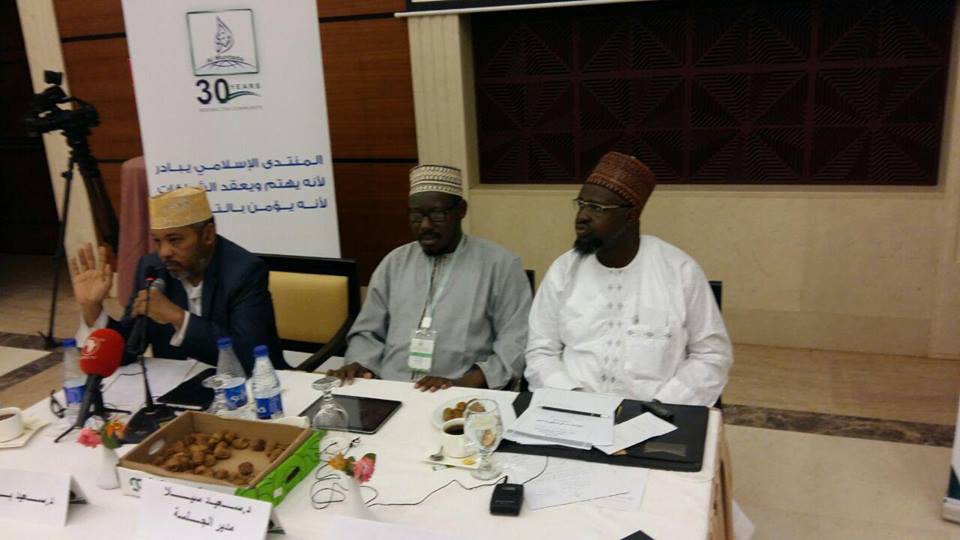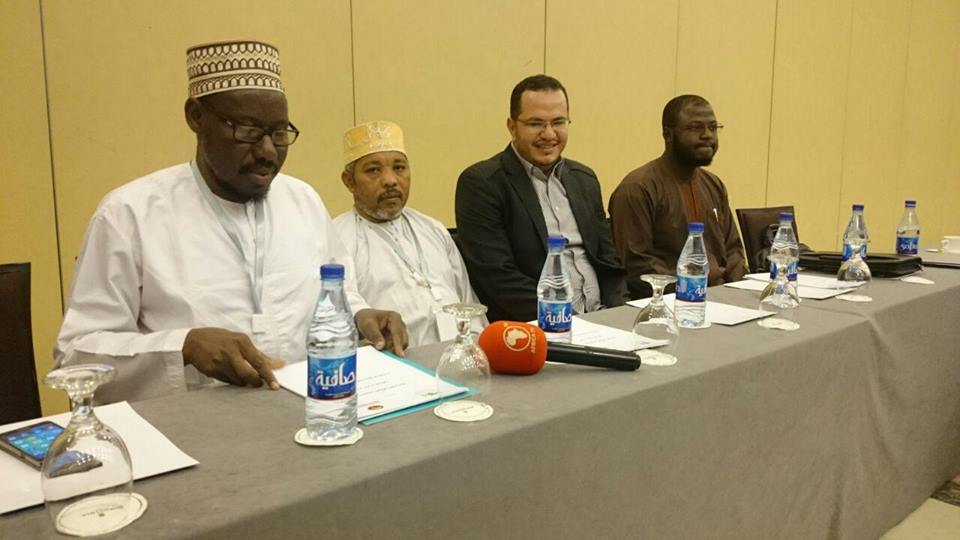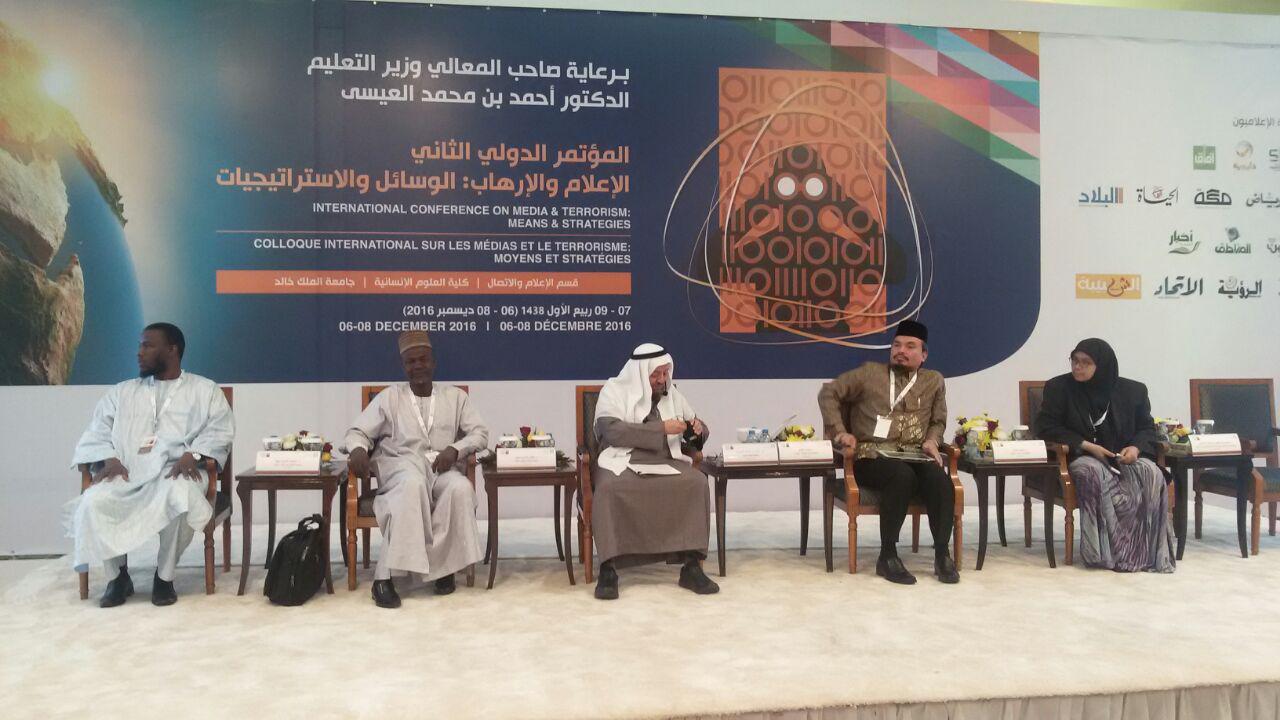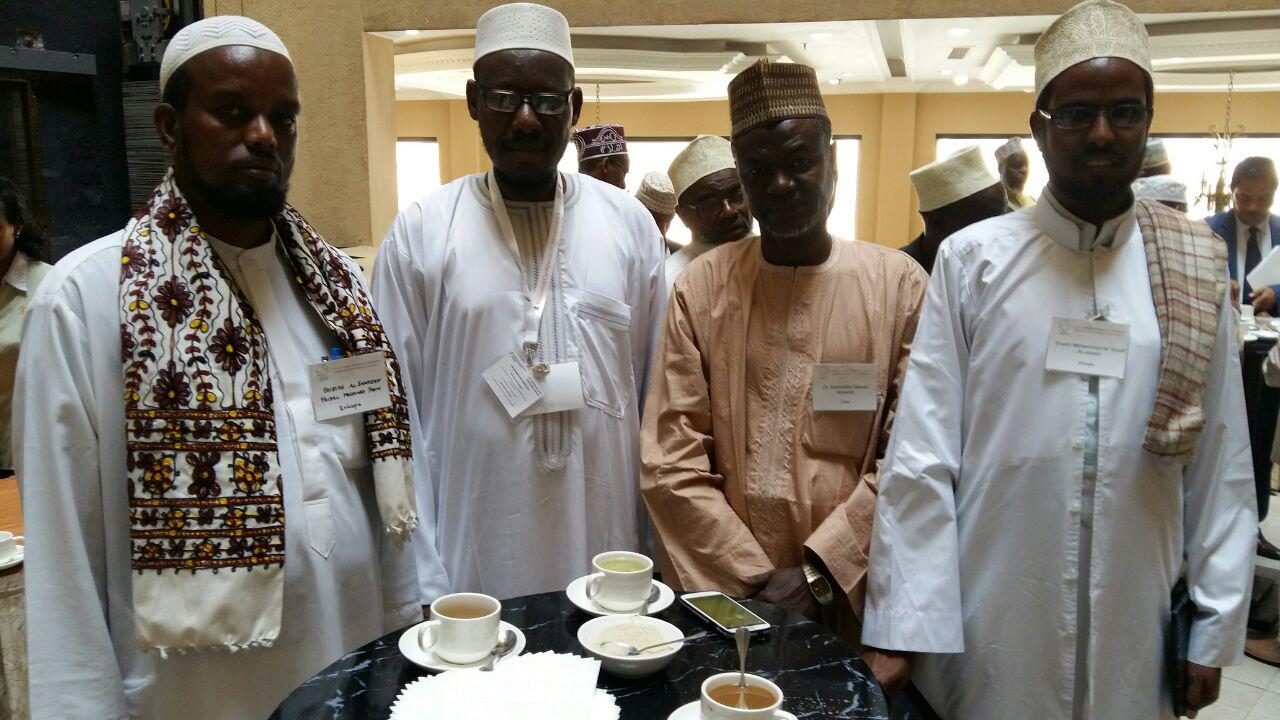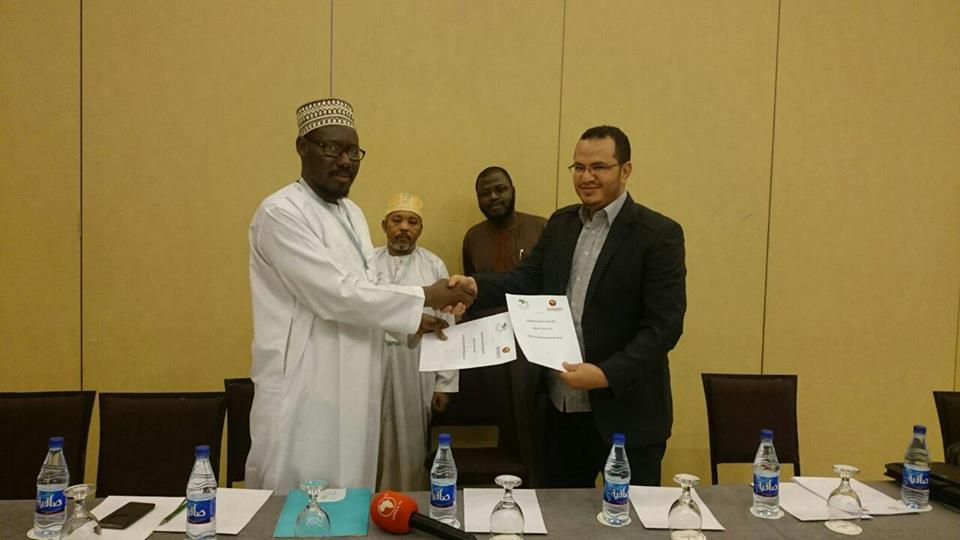Idea:
The creation of an union for the scholars of sub-Saharan in Africa to serve as a scientific instance reference and effective among African communities, strengthens the role of scholars and preachers in directing community at all strata and levels, regulates fatwas, interacts according to the continent public events and represents Muslims in large meetings: local, regional and international.
Vision:
a legitimate scientific reference for reawakening of Islamic community in Africa.
Message:
Consolidation of African scholars efforts and unifying their ranks in order to lead Muslim community in accordance with authentic Islamic method.
General policies:
1. considering both holy Koran and tradition of the prophet, (salvation and peace upon him) as a scientific reference according to the understanding of imams of the right pave, an understanding based on Islam golden mean;
2. Strengthening the local dimension of the African Union in terms of the creating and functioning with the existence of effective representation of all sides of Africa.
3. Work to be autonomous and away from countries an organizations guardianship;
4. Establish a strong relationship with the community through the strengthening of the position of its members in local groups with similar orientations;
5. Adopt a scientific and professional mechanism in taking decisions, positions and points of view;
6. Adopt a pragmatic strategy in collaboration with organizations, official institutions and the opposite trends;
7. Adopt a media policy which bears the message of the Union in the orientation of the continent;
8. Union opens its doors to all people, men and women, for work under guidance of Muslim rules and laws.
Objectives:
1. Find a scientific instance as reference for preaching to guide and coordinate scientific efforts and preaching in Africa.
2. Find an Islamic instance that represents the Muslim of the continent before the institutions and scientific organizations, national and international academic;
3. Strengthen the efforts of scholars in directing and guiding African communities;
4. Normalize Fatwas on public issues in Africa;
5.implementing a strategy to consolidate peaceful coexistence between different visions of African communities;
6. Open communication channels and mutual aid with other Islamic groups to serve Muslims public issues.
Means of actions:
1. Coordinate scientific ,educational and preaching efforts in Africa;
2. create and sponsor scientific , educational projects and preaching;
3. Make and publish statements on public issues through the media;
4. giving advice, opinions and suggestions to concerned structures;
5. make effort in conflicts settlement in which a Muslim is involved;
6. Make Fatwas on public affairs and during unusual events;
7. Do the maintenance of mosques and train those who are in charge)
8. Organize meetings, scientific conferences, preaching, holding symposiums and public lectures;
9. Organize training seminars for capacity building and talent development;
10. Create a database on Islam in Africa to facilitate the necessary research;
11. Make surveys, researches and publish them;
12. Produce audiovisual programs in official and popular languages in Africa;
13. Establish and use any kind of communication means.
Organization of the Union
A Instances:
1. General assembly;
2. General Congress;
3. Council of Secretaries.
B executing bodies:
1. Presidency
2. General secretariat (executive body);
3. Technical Committees and Permanent Antennas:
- a) Planning and Control Commission;
b) surveys, research and translation Commission ;
c) Fatwas and orientation Committee;
d) communication and public relations Committee;
e) Membership Committee;
f) Finances Committee;
g) Education Committee;
h) Dialogue and good offices Committee.
Membership:
To day, the union has registered the membership of 224 ulemas from 42 countries of sub-Saharan Africa. In addition, several other applications and membership proposals are under consideration by the General Secretariat and the membership committee in accordance with the procedure followed before these bodies.
The member must meet the following conditions:
- know charia and news, and be able to assess the circumstances and situations;
Being a person of influence in the community;
c. Do not be among those known by the deviation.
Union resources:
a. Annual contributions of members
b. Donations, legacies and other;
c. Investment and income from the sale of publications, research and services that the union may render against payment;
d. Any other resources consistent with the principles of the union.
Constitutive Congress:
The constitutive congress of the Union was held from 7 to 9 Cha’aban 1432H, or from 8 to 10th July 2011 in Bamako, capital of Mali in the presence of 132 people representing 39 countries, including the founding members in Africa and observers of Islamic organizations and institutions outside of Africa, led by a delegation of the Organization of Islamic Cooperation. The congress was placed under the sign: “The role of the scholars in the consolidation of peace.”
Projects within the five-year plan
– Build a head quarter for the union in Bamako
– Creation of a dynamic and encyclopedic Website on the Internet;
– lunching channel Haski on the satellite for West Africa
– lunching a channel in Swahili on satellite for East and Central Africa
– Opening of four regional offices
– Organization of four regional lectures
– Creating a general database of all scholars and scientific institutions in Africa;
– A waqf for a real estate investment;
